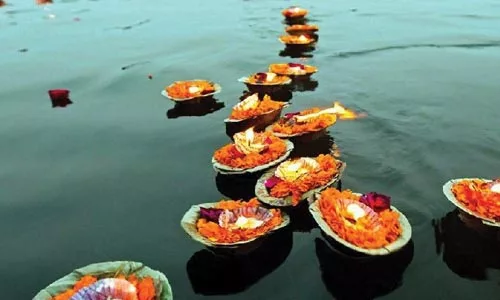 Pitra Paksha is a time to honour our ancestors and the path they paved for us.
Pitra Paksha is a time to honour our ancestors and the path they paved for us.
Narada Muni advised Yudhishthira to perform the Rajasuya sacrifice so that his father, Maharaja Pandu, could continue his journey beyond Pitraloka.
Sri Nrisimha Deva Bhagavan requested Prahlada Maharaja to perform the last rites for Hiranyakashipu, even though he had been purified by the touch of Sri Nrisimha Deva.
The Pandavas, although they justly eliminated Duryodhana and his company, but continued to support their uncle in performing the yearly Shraddha for them.
In the Bhagavad Gita, Arjuna objected to fight because he felt that the war will make many millions of women shelterless who would be vulnerable to exploitation, moreover children born out of such forceful union will be reckless and neglectful to perform Shraddha for their ancestors and they will be stuck nowhere. Violence, shelterless, unwanted children, no knowledge and then no oblation and the ancestors will be stuck. This would result in vicious circle of violence leading to irresponsibility caused by broken legacy.
Pitri paksha therefore urges individuals to continue the chain of legacy as much as possible by remembering their ancestors.
The beginning of Pitra paksha, from Prathama to Amavasya in Bhadrapada month is meant to offer gratitude to our ancestors, while keeping Vishnu in the centre.
It doesn’t matter whether one is spiritually elevated or not; but the act of Yagna and gratitude applies to all. Even the great Shankaracharya, wrote a Stotram glorifying his mother, called as Matra Panchakas.
There is no one who does not offer gratitude and claim to be a civilised human being. During Pitra Paksha, let us offer our gratitude to our ancestors and uphold the chain of legacy.
– Govinda Das



